- Home
- Linda Castillo
A Gathering of Secrets Page 26
A Gathering of Secrets Read online
Page 26
“It doesn’t make sense.”
Even as I say the words, I realize it does, but in a way that’s so twisted, so perverse, I’m not sure I’ll ever be able to get my head around it.
* * *
They say criminals always return to the scene of the crime. Sometimes cops do, too. For different reasons, of course. Closure being one of them. Not that I believe in that sort of thing. When you’re a cop, believing in something as trite as closure—or even justice, for that matter—is sort of like believing in the tooth fairy. Life isn’t that neat.
Drizzle falls from a Teflon-gray sky when I pull into the parking lot of The Mercantile. For five days I’ve debated whether to come back. I want to think it’s for a final look at the place where I nearly lost my life. Maybe thumb my nose at the Grim Reaper. But this pilgrimage isn’t about coming to terms with either of those things. I haven’t been able to stop thinking about the three young Amish women whose lives intersected with mine in the course of the Gingerich case. Viola Stutzman. Ina Yoder. And Neva Lambright. Especially Neva.
Instead of parking near the front entrance, where a dozen or so vehicles and half as many buggies are lined up outside the door, I idle around to the rear, where the skeletal remains of the round barn stand in dark testament to the tragedy that occurred here just five days ago. The only things left are the blackened bones of the wood frame, the rafters, and the stone foundation. I wonder if it’s been slated for demolition.
Shutting down the engine, I get out, barely noticing the drizzle or the breeze that’s kicked up from the east. A lone piece of yellow caution tape demarks what had once been the crime scene. I think about Skid and I wonder if he’s been back to the scene where Edna Lambright died.
It wasn’t easy telling him he shot and killed an unarmed woman. She brandished the weapon; we had no way of knowing the gun was unloaded. There’s no doubt he had just cause for deadly force. Still, there are some who will argue the point. Skid put on a brave front after receiving the news; he cracked a couple of inappropriate jokes. We laughed when we probably shouldn’t have. He cursed the woman who’d used him in such a cruel, life-altering way. Despite his efforts to convince me otherwise, I’m pretty sure I left him in worse condition than when I arrived.
I’ve talked to him every day since it happened. Twice he was drunk and alone—a bad combination for a cop dealing with killing an unarmed citizen. But he’s trying. BCI is handling the investigation. I fully expect him to be exonerated of any wrongdoing. Once that happens, I’ll put him back on duty. I’m hoping his old routine—and being around people who care about him—will help get him back on track.
I stroll over to the barn. The stone foundation looks like rows of rotting and missing teeth. Inside, the ground is littered with charred debris of indiscernible origin, burned chunks of wood, blackened rock. I make my way down the hill and around to the back. The two rocks I dislodged to escape are still there, lying in the weeds and mud, forgotten.
“What the hell were you thinking, Edna?” I whisper.
The only answer is the solitary whistle of a cardinal from the row of trees at the edge of the parking lot.
Back in the Explorer, I drive around to the front of The Mercantile and head inside. Today is the first day the shop has been open for business since Edna Lambright’s death. The community—Amish and English alike—have come out in force to support the Lambright family, and the place is a beehive of activity.
Inside, a handful of customers stand in line at the cash register, which is being manned by a somber-looking Ina Yoder. A family of four, out-of-town tourists probably, is checking out the greeting card display. I wave to Ina when I walk in, but she doesn’t notice. I start toward the rear of the store.
I’m midway through the candle section when I spot Viola Stutzman in the next row. She’s with two customers, but spots me. Her eyes jump with a quick flash of recognition, but I can’t read her expression. I’m not sure how my being here will be received, since I was there the night Edna Lambright was killed.
I start toward Viola, pausing a few feet away, giving her time to finish with her customers. She’s been crying at some point. Her eyes are puffy; the tip of her nose is red and chapped. Her face is paler than usual. If I’m not mistaken, she’s lost a couple of pounds since I last saw her. Despite her evident sadness, she’s doing a decent sales pitch for the pretty knitted afghan draped over her arm.
“My grossmudder made this one,” she tells them. “It’s my favorite and I’m sure your aunt would love it, especially on those cold winter nights up there in Cleveland.”
Sold, the couple thanks her and takes the afghan to the cash register.
“You’re a natural,” I tell her.
There’s no hostility in her eyes when she looks at me, no blame. Just a thinly veiled sadness and the same kind of discomfort I feel in the pit of my stomach.
“Chief Burkholder. I’m … I’m glad you’re okay.”
“I hope you’re all right with my being here. If you’re not, I can take off.”
“I’m okay with it. I just…” She lets the words trail as if she isn’t quite sure how to finish the sentence. “What a terrible … tragedy.”
“I’m sorry about Edna,” I tell her.
Pain flashes across her face. “Thank you.”
For an instant I think she’s going to burst into tears, but she holds on to her composure. “I don’t think it’s sunk in yet. I mean, that she’s gone. I still can’t believe it.” She looks out across the shop. “I keep thinking she’s going to barrel around the corner, shoes stomping, face stern like always, and she’s going to have some chore or errand for me that I don’t want to do.”
“How are you holding up?”
“I’m okay. Sad for Neva mostly. She took it hard.”
I glance around the shop. “How is she?”
“Her heart is broken. First Emma and now her mamm.” She shakes her head. “I told her not to come in today. It’s too soon. I caught her crying back in the break room twice now. I don’t think she’s going to be able to stay.”
I nod. “I’d like to offer my condolences. Do you think she’d talk to me?”
Her eyes fill, but she doesn’t let the tears fall. “She doesn’t blame you for what happened, Chief Burkholder. I talked to her earlier, and she’s just … sad and confused. If you want to see her, she’s in the break room.”
“Thank you.” I reach out and squeeze her hand. “I won’t keep her long.”
I make my way to the rear of the store, where the break room is located. I find Neva sitting at the table, unmoving, staring blankly at the tabletop. She doesn’t look up when I enter. I’m not even sure she heard me. For an instant, I consider turning around and leaving.
Then she raises her head. Her eyes meet mine and widen. Surprise flashes, but it’s overshadowed by the grief I see etched into her every feature. “Chief Burkholder.”
“Hi, Neva.”
She starts to rise. “I didn’t think you’d—”
“Don’t get up,” I tell her. “I can’t stay. I just wanted to … see you. See how you’re doing.”
She lowers herself back into the chair. “I’m okay.”
We both know the words couldn’t be farther from the truth. Her eyes have a dull sheen. Her nose is red from crying. Her lips are dry and chapped.
“I’m sorry about your mamm,” I say quietly.
Bowing her head, she chokes out a sob and begins to cry.
I’m not much of a hugger, but this girl looks so sad, so broken, so utterly lost. I vacillate a moment, then go to her, put my arms around her shoulders, give a brief but heartfelt embrace.
“If you want me to leave, I’ll understand,” I say quietly.
Pulling away slightly, she raises her head, pulls a well-used tissue from her apron pocket, and blots her face. “Don’t go.” She blows her nose. “I know it wasn’t your fault.”
I tug out the chair next to her and sit. “I didn’t think you’d
be back at work so soon.”
“Everyone thinks I’m nuts.” She chokes out a laugh that sounds more like a sob. “I probably am. But I couldn’t stay away. Mamm loved this place so much. I know it sounds weird, but I feel closer to her here. I mean, everything you see on the shelves? Chances are, she put it there. She touched it with her own hands. The candles. The quilts. The afghans.”
“Sometimes work is good therapy,” I tell her. “And it helps to be around people who love you.”
“I don’t know how I’d have gotten through the last few days without Ina and Viola. They’ve been so good. Even the customers have been sweet.”
I take a moment to get my words in order and say what I’ve wanted to say for days now. “I know what happened is painful and confusing for you and your family. I want you know … if you have questions or want to talk about it, I’m here for you. If you prefer not to talk about it, that’s okay, too.”
She gives me a grateful look, but there’s caution in her eyes, as well, right next to the pain and every bit as large. “I can’t believe the things people are saying about her. The things I’ve read in the newspaper.”
She’s referring to a piece that ran in The Budget, the newspaper that serves most of Ohio’s Amish population. Other publications ran stories, too. The Plain Dealer out of Cleveland. The Columbus Dispatch. Stories that elucidated the circumstances of Edna Lambright’s death, including her confession to the murder of Daniel Gingerich.
Absently, Neva rubs away the tears that have begun to fall. “I don’t know what could have compelled her to do such things. To Daniel Gingerich. To you.” She chokes out a sound of pure anguish. “She was kind, and she loved God.…” Lowering her head, she puts her fingers to her temples. “It hurts to think of how all of it must have weighed on her conscience.”
She raises her gaze to mine, tears shimmering, torment etched into her every feature. “What could she possibly have been thinking?”
Those are the questions I’ve struggled with for five days now. Questions I still don’t know how to answer. “We may never know for sure.”
“How could she do that to us?” she whispers.
I think about the final minutes I spent with Edna Lambright in the barn. The things she said. The things she knew.
Danny Gingerich was a devil in disguise.…
“Your mamm knew what Daniel Gingerich was,” I tell her. “She knew what he did to Emma Miller. I think she knew he wouldn’t stop. That he would continue to hurt people.” I shrug. “Maybe she handled it the only way she knew how.”
She stares at me, blinking, looking so fragile I’m almost afraid she’s going to shatter right before my eyes. “Mamm loved Emma like a daughter.”
I nod, wishing there was something I could say or do to ease her pain, but there’s nothing.
“None of that explains what she did to you.” Her whisper is hoarse, her words barely audible.
“I was a threat.” I shrug. “We’ll probably never know all of it.”
She struggles for a moment, then raises shimmering eyes to mine. “I’m sorry for what she did. To you. To Daniel, even. I don’t know how to make any of it right. I’m so … ashamed.”
“It wasn’t your fault.”
She shakes her head, tears spilling over her lashes. “I love her. I’ll always love her. And I miss her desperately. But I’m angry with her, too.”
Pulling the shredded tissue from the pocket of her apron, she wipes her eyes. We fall silent and for the first time she looks uncomfortable. I feel that same discomfort. Time to go, I realize. Let this be. Let all of it go and move on.
“I’ve got to get back to the station,” I tell her as I rise. “I just wanted to stop in and see how you were doing.”
She wipes her eyes with the tissue, takes a deep breath, and composes herself. “It must have been hard for you. Thank you.”
Before I can respond, she rises abruptly, rushes to me, throws her arms around me, and buries her face against my shoulder. “I’m glad you’re okay.”
Pulling away, she gives me a quick, sad smile and then she’s gone.
I stand there a moment, hands in my pockets, feeling uncharacteristically melancholy. “Bye, Neva.”
Letting out a long sigh, I leave the break room and start toward the front of the store. I’d wanted to see Ina, too, but I’m too raw. Better to leave things as they are and get on with my life.
I’m nearly to the door when I walk past the old-fashioned bulletin board affixed to a column. A piece of card stock tacked to the cork catches my eye. I almost don’t stop, but a prickly sensation on the back of my neck prompts me to turn around and go back.
I scan the board, trying to figure out what had snagged my attention. My eyes are drawn to a handwritten announcement.
Candle making class! Tuesday evening 6:30 to 7:30 PM.
Just $15. Open to the public.
Sign up at the customer service desk. ☺
The advertisement is written on a five-by-eight-inch index card in purple ink, and pinned to the cork with a lime-green tack. Someone has drawn in a smiley face in the lower right-hand corner. There’s nothing particularly unusual about it. Nothing that should have given me pause. And yet …
Around me, the sounds of the shop—conversation, the ding of the cash register, and the clatter of merchandise being handled—fade to babble. My vision tunnels on the handwriting. It’s cursive embellished with ornate swirls and curlicues. There are five “i”s; each one is dotted with a little heart.
I snatch the card from the board and take it to the customer service desk, where a Mennonite woman is helping a customer with a return. I show her the card. “Do you know who wrote this?”
She frowns at me, letting me know I’m being rude for butting in line, but she glances at the card. “That’s Viola’s handwriting,” she says. “I can sign you up for the class, but you’ll need to get in line and wait your turn.”
For an instant I stand there, feeling as if I’ve been sucker punched. I’m aware of the Amish woman staring at me, wondering what’s wrong with me.
Sliding the card into the back pocket of my trousers, I back away from her and head for the door.
CHAPTER 24
Twenty minutes later, I pull into the parking lot of Quality Implement and park in the fire lane a few feet from the front door. Hoping I’m wrong, I tug out the card as I walk inside and look at it again. The handwriting stares back at me in indisputable black and white.
“What did you do?” I whisper.
Then I’m through the door and striding directly to the tire, battery, and auto department. I find Ralph Baker sitting on the top rung of a stepladder in the windshield wiper aisle, jotting SKU numbers onto a clipboard.
“Mr. Baker?”
He glances up. “Oh, hi, Chief Burkholder.” Smiling, he rises. “What can I help you with today?”
I show him the card. “Do you recognize this handwriting?”
“Huh? Well … let me see.” Lowering reading glasses from his crown, he tilts his head back to look at it through his bifocals and squints. “What am I looking at here, exactly? I mean, what is this?”
I rephrase my question. “Is there anything about this handwriting that’s familiar to you?”
Again, he lowers the glasses and looks at the handwriting. “I don’t know that I’ve ever seen it before. But I’m not exactly sure where you’re coming from here.”
The last thing I want to do is ask a leading question. A question posed in such a way that it could influence his answer. “Mr. Baker, when you came to me about the note Daniel Gingerich received shortly before his death, you described it as a ‘girlie’ style of handwriting. You mentioned little hearts over the i’s. Is that correct?”
“Oh! By golly, I did. I’d forgotten all about that. Sheesh.” He makes a “crazy” gesture with his hand, then takes another look at the index card and frowns. “Gosh, Chief, I only saw that note for a second, but this sure looks like the
same writing. Same little hearts over the i’s, just like what’s on that card there. Same color ink, too.”
“Do you think it’s the same handwriting?”
“Well, I can’t say for sure, but it sure looks like it.”
* * *
Questions bombard me as I walk back to the Explorer. Is it possible Viola Stutzman wrote the note that lured Daniel Gingerich to the barn the night he was killed? Was she somehow involved? Or did she simply write the note for Edna Lambright? If that’s the case, why didn’t she mention it when I talked to her about it?
By the time I climb into the Explorer, I’ve got a knot in my gut. My hands are shaking when I set them on the steering wheel. I sit there a moment, trying to make sense of it, and what it could mean in terms of the case.
Thoughts racing, I pick up the phone and call Tomasetti. “Do the latent prints on the key found at the scene of the Gingerich fire belong to Edna Lambright?” I hear the high-wire tension in my voice. I’m pretty sure Tomasetti hears it, too, because he takes his time responding.
“I thought you were about to close the case.”
“I thought so, too.” I tell him about finding the card at The Mercantile and my conversation with Ralph Baker.
“He thinks it’s the same handwriting?”
“He only got a glimpse, but he remembers the little hearts above the i’s and the purple ink.”
“Viola Stutzman probably isn’t the only teenaged girl who writes that way or uses colored ink.”
“I know. And I know it’s a tenuous connection.”
“That’s not to mention you don’t have the note for comparison purposes.”
“The note was never found. I assumed it was destroyed in the fire.” I take a breath, blow it out. “Tomasetti, I don’t think I can ignore this.”
I hear computer keys clicking on the other end of the line and I know he’s accessing the information on the latents. He makes a sound low in his throat, telling me he found what he was looking for—and he doesn’t like what he sees.
“Because of the cause and manner of Edna Lambright’s death, fingerprints were obtained at the time of autopsy.” A few more clicks sound, and then, “That comparative analysis was never done because Edna Lambright confessed.”

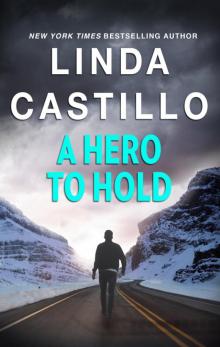 A Hero to Hold
A Hero to Hold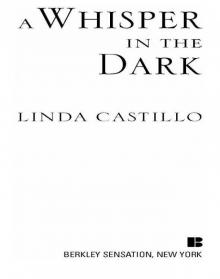 A Whisper in the Dark
A Whisper in the Dark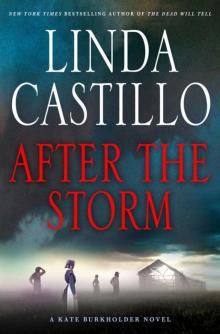 After the Storm
After the Storm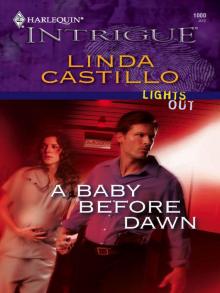 A Baby Before Dawn
A Baby Before Dawn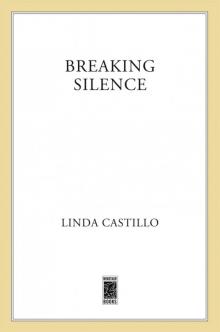 Breaking Silence
Breaking Silence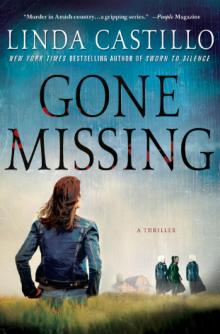 Gone Missing
Gone Missing Long Lost
Long Lost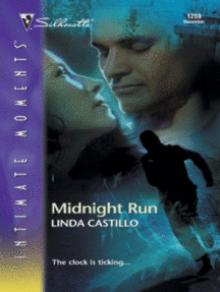 Midnight Run
Midnight Run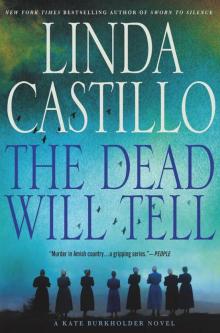 The Dead Will Tell
The Dead Will Tell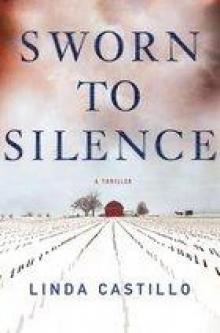 Sworn to Silence
Sworn to Silence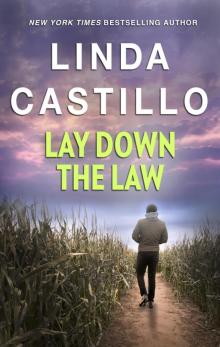 Lay Down the Law
Lay Down the Law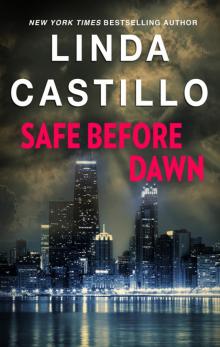 Safe Before Dawn
Safe Before Dawn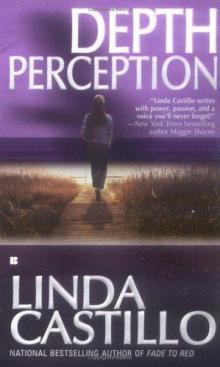 Depth Perception
Depth Perception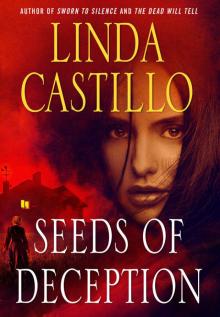 Seeds of Deception
Seeds of Deception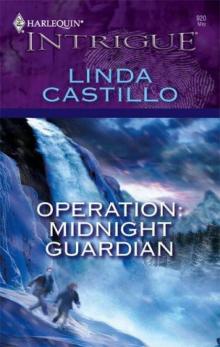 Operation: Midnight Guardian
Operation: Midnight Guardian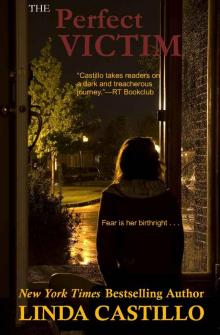 The Perfect Victim
The Perfect Victim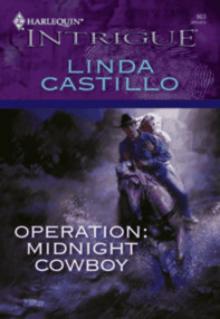 Operation: Midnight Tango
Operation: Midnight Tango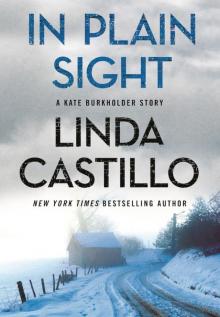 In Plain Sight (Kate Burkholder)
In Plain Sight (Kate Burkholder)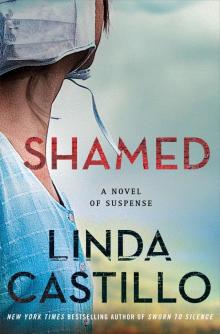 Shamed
Shamed Fallen
Fallen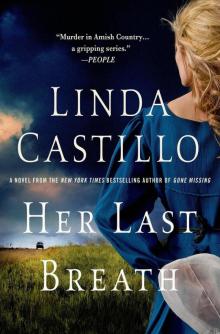 Her Last Breath
Her Last Breath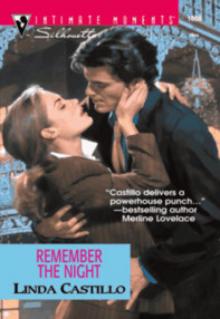 Remember the Night (Men in Blue)
Remember the Night (Men in Blue) Dead Reckoning
Dead Reckoning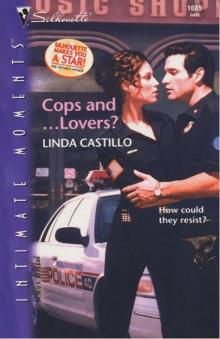 Cops and ... Lovers?
Cops and ... Lovers? The Pact
The Pact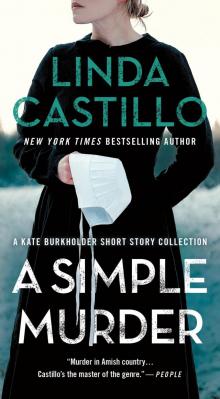 A Simple Murder
A Simple Murder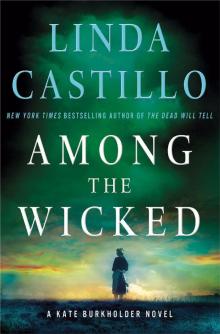 Among the Wicked
Among the Wicked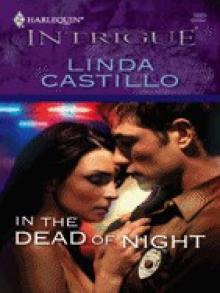 In the Dead of Night
In the Dead of Night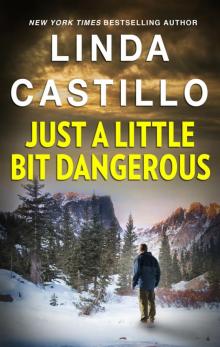 Just a Little Bit Dangerous
Just a Little Bit Dangerous The Phoenix Encounter
The Phoenix Encounter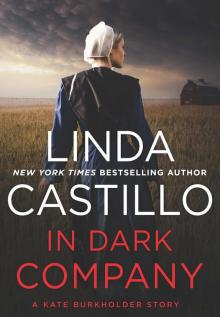 In Dark Company
In Dark Company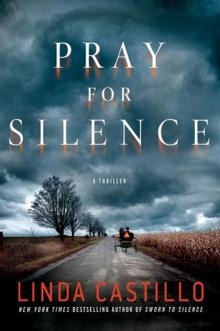 Pray for Silence
Pray for Silence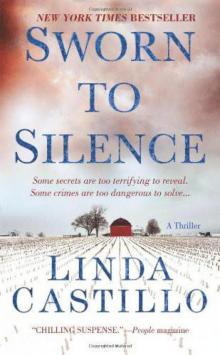 Kate Burkholder 01-Sworn to Silence
Kate Burkholder 01-Sworn to Silence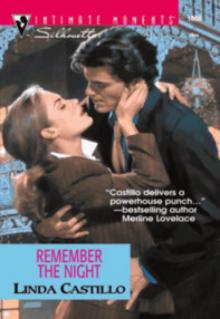 Remember the Night
Remember the Night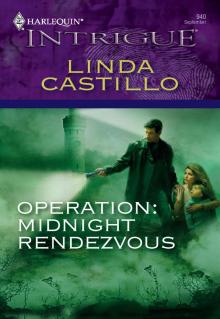 Operation: Midnight Rendezvous
Operation: Midnight Rendezvous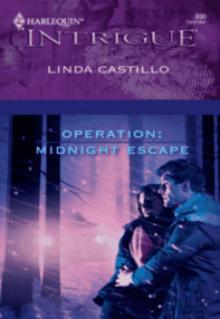 Operation: Midnight Escape
Operation: Midnight Escape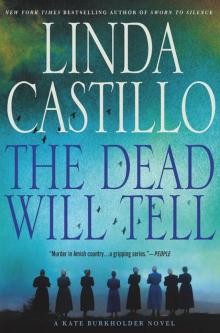 The Dead Will Tell: A Kate Burkholder Novel
The Dead Will Tell: A Kate Burkholder Novel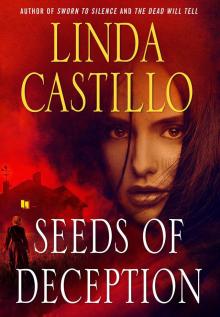 Seeds of Deception: A Kate Burkholder Short Story
Seeds of Deception: A Kate Burkholder Short Story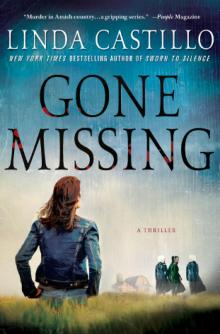 Gone Missing (Kate Burkholder 4) kb-4
Gone Missing (Kate Burkholder 4) kb-4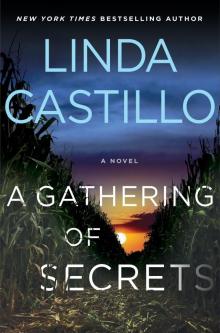 A Gathering of Secrets
A Gathering of Secrets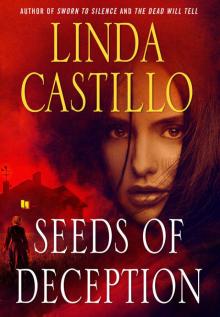 Seeds of Deception: A Kate Burkholder Short Story (Kindle Single)
Seeds of Deception: A Kate Burkholder Short Story (Kindle Single)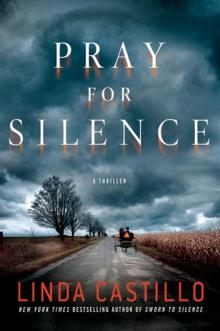 Pray for Silence kb-2
Pray for Silence kb-2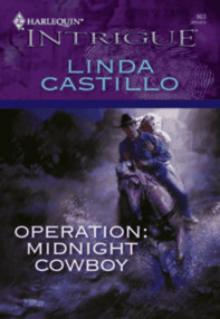 Operation: Midnight Cowboy
Operation: Midnight Cowboy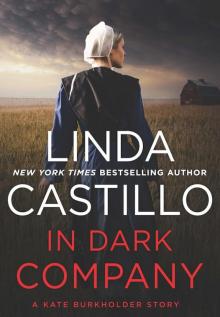 In Dark Company_A Kate Burkholder Short Mystery
In Dark Company_A Kate Burkholder Short Mystery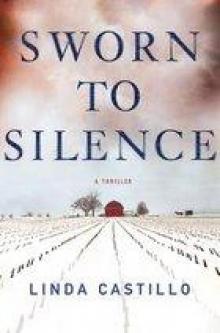 Sworn to Silence kb-1
Sworn to Silence kb-1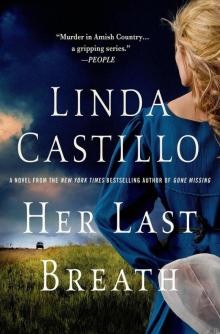 Her Last Breath: A Kate Burkholder Novel
Her Last Breath: A Kate Burkholder Novel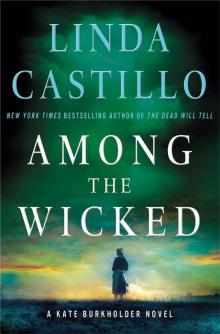 Among the Wicked: A Kate Burkholder Novel
Among the Wicked: A Kate Burkholder Novel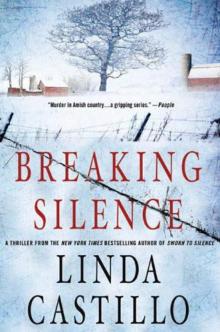 Breaking Silence kb-3
Breaking Silence kb-3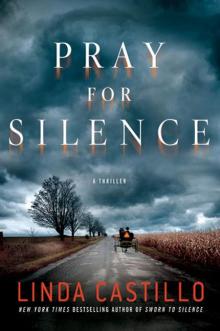 Kate Burkholder 2 - Pray for Silence
Kate Burkholder 2 - Pray for Silence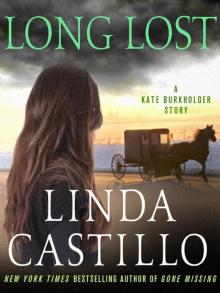 Long Lost: A Kate Burkholder Short Story
Long Lost: A Kate Burkholder Short Story